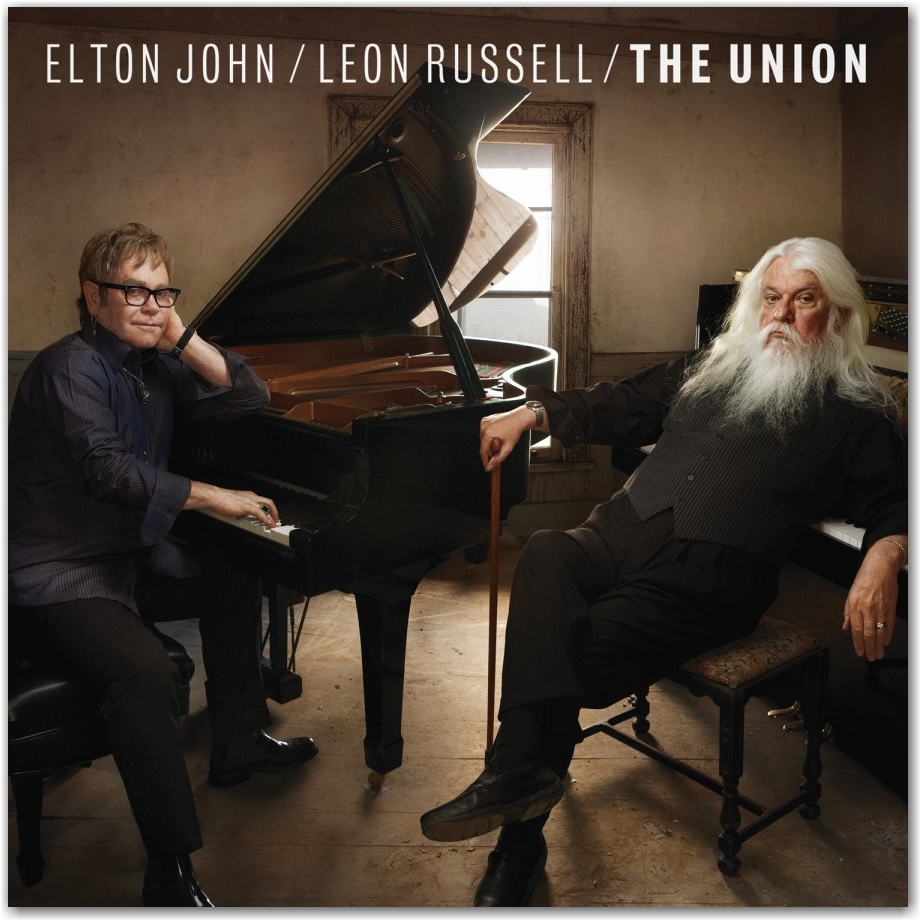
The Union (2010)

1. If It Wasn't For Bad
2. Eight Hundred Dollar Shoes
3. Hey Ahab
4. Gone to Shiloh
5. Jimmie Rodger's Dream
6. There's No Tomorrow
7. Monkey Suit
8. The Best Part of the Day
9. A DreamCome True
10.When Love is Dying
11.I Should Have Sent Roses
12.Hearts Have Turned to Stone
13.Never Too Old (To Hold Somebody)
14.In the Hands of Angels
By the time The Union appeared in 2010, Elton John had long since moved past the traditional album-tour-album cycle of his youth. The charts no longer dictated his schedule, and his output had become increasingly eclectic—film scores, musicals, soundtracks, and the occasional studio album. But this project felt different from the start. Rather than another foray into theatrical ventures, Elton returned to the piano with a partner—one of his earliest heroes, Leon Russell.
For some, especially listeners under a certain age, the name Leon Russell may not carry much immediate weight. A fixture of the late ’60s and early ’70s, Russell made his name as a session player, solo artist, and bandleader—most notably with his group The Shelter People. By the time Elton was hitting his stride in 1970, Leon was already well respected within the industry, even as his mainstream profile began to dim. Though he never fully disappeared, Russell spent the latter half of his career quietly releasing albums for a loyal, if modest, audience. Among fellow musicians, however, his reputation remained intact: a gifted, genre-hopping pianist and songwriter who helped define an era.
It’s no surprise, then, that The Union feels more like a love letter than a commercial endeavor. Part tribute, part collaboration, and part reclamation, the album brings together two artists who, on paper, might seem like opposites—Elton with his British flair and theatrical polish, and Russell with his Oklahoma drawl and dusty Americana roots. But in practice, the connection is undeniable.
From the first track, the chemistry is apparent. Their pianos—distinct, yet strangely in sync—sit comfortably side by side, and often it's hard to tell who’s playing what. Vocally, they take turns, trade verses, and occasionally blend together, but there’s never a sense of competition. Elton, to his credit, gives Russell plenty of room to shine, and Russell, despite some age in his voice, delivers with conviction and soul.
The songwriting leans heavily into rustic, gospel-tinged territory—equal parts Southern spiritual and old-time saloon. The John-Taupin material is reliably strong (Monkey Suit, When Love Is Dying), but Russell’s contributions hold their own. Some of the best moments occur when both artists share the spotlight, most notably on Gone to Shiloh, a haunting Civil War elegy made all the more moving by a guest vocal from Neil Young. It’s a stark, stirring piece—one of the best on the album—and a reminder of the emotional depth these elder statesmen are still capable of reaching.
If there’s a fault, it’s in the album’s length. At 14 tracks, it tends to drag in the middle. A tighter edit—maybe by trimming two or three songs—would have made the whole effort feel more focused. Still, that’s a minor quibble for a record that feels more about spirit than structure.
In the end, The Union isn’t trying to relive the past. It’s not a return to the chart-topping days, nor does it try to be. Instead, it’s a generous, deeply felt collaboration between two artists who share more musical DNA than one might expect. For Elton, it’s another curve in an already winding road. For Russell, it was a long-overdue moment in the spotlight. For the rest of us, it’s simply a good record—one that honors history without being bound to it.
Go back to the main page
Go to the Next Review